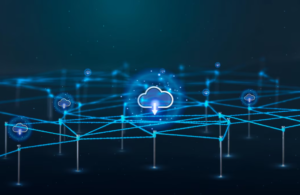
With the fastest pace of digitalization of businesses in the Middle East, North Africa, and Africa, cybersecurity and data protection have become the priorities. As more organizations move towards cloud computing, artificial intelligence, and remote working, the dynamic nature of digital threats has compelled organizations to take a proactive approach to security.
Here, Cybersecurity Services MENA and Business Data Protection in Africa is not only an IT activity, but an element of strategy that guarantees trust, compliance, and continuity of business.
The reason Cybersecurity is the Backbone of Digital Transformation.
MENA has a flourishing digital economy. Businesses are going online, whether in terms of fintech or healthcare, e-commerce or government services. This growth, however, has exposed them to cyberattacks in forms of phishing, ransomware, and data breaches.
The Cybersecurity Services in MENA are important in:
- Threat Detection & Prevention: Sophisticated surveillance solutions detect and eliminate attacks on the fly.
- Network Security: Enterprise data flow is secured by Firewall, encryption and intrusion detection.
- Endpoint Protection: protection of all connected devices, not only employee laptops, but also mobile systems.
- Cloud Security: Providing a secure migration and security of vital information in hybrid and multi-clouds.
Increased use of digital systems has made cybersecurity a major issue in a boardroom. Firms that do not invest in effective security systems have the risk of losing data as well as client confidence and operations.
The value of Business Data Protection in Africa.
The most valuable asset in the world today is data; and the African thriving digital ecosystem is not an exception. With the continent experiencing a booming e-commerce, online banking, and mobile network, Business Data Protection within Africa has emerged as a critical aspect of IT governance.
Current business deals with large volumes of personal and financial information requiring storage, processing, and transferring in a safe manner. African organizations are emphasizing on in order to keep this information secure:
- Information Backup and recovery: Data will be available in case of disaster or a cyber attack.
- Regulatory Compliance: Conformity to laws on data protection such as: POPIA (South Africa) and Nigeria NDPR.
- Access Management: Regulating the access to business critical information by users.
- Data Encryption: This involves the application of sophisticated encryption techniques that will ensure unauthorized access of data.
With the focus on robust data protection, African companies are creating resilient systems that are capable of withstanding international cybersecurity threats.
Combining CY and Data Protection Plans.
Whereas cybersecurity is based on the prevention of unauthorized access, data protection is used to make sure that the information is not lost or damaged when the threats strike. The ability to combine these two functions gives a complete defense strategy that increases the overall resilience of an organization.
Both MENA and African enterprises are merging:
- Active Cybersecurity Frameworks (firewalls, AI-based threat analysis)
- Strong Data Protection Policies (data loss prevention, encrypting, and backups)
- Real-time Detection (alerts and system audits)
- It is a single practice that will reduce risks, shorten downtime and ensure the international data standards, such as ISO 27001 or GDPR.
The Managed Security Services in MENA.
To most small and medium-sized businesses, it is costly and time consuming to develop an internal security division. This is where the managed cybersecurity services are involved.
The services that are frequently provided in MENA under cybersecurity include:
- Security Operations Centers (SOC): 24/7 incident response and threat monitoring.
- Vulnerability Tests: Determining vulnerabilities in applications, networks and servers.
- Penetration Testing: This is a simulation of attacks to measure system defenses.
- Compliance Consulting: Assisting companies in making them conform to the local and international security standard.
Such services enable businesses to concentrate on growth and innovation as specialists can take care of threat management, system hardening, and compliance management.
The benefits of Data Protection Investments to the African Enterprises.
Investment in Business Data Protection in Africa is not about compliance, but rather sustainability in operations. Key benefits include:
- Customer Trust: Clients will have more incentives to interact with brands that are responsible in their data management.
- Business Continuity: Backups and recovery system should be reliable so as to limit downtimes during cyber attacks.
- Competitive Edge: Competitive innovation is secure due to the protection of data-driven insights.
- Risk Mitigation: Minimizes financial damages to breach or data leakage.
With an installation of the modern data protection mechanisms, the African business will empower its reputation as well as its capacity to expand internationally.
Cyber Resilience: Future of Security in MENA and Africa.
There is no longer a distinction between cybersecurity and data protection as the two are fundamental building blocks of a sustainable digitalization. Both regions are now implementing tighter rules on data privacy, and are also encouraging national systems of cybersecurity to foster digital trust.
The next generation of the Cybersecurity Services within MENA will use AI, automation, and predictive analytics to identify and prevent threats before they can cause harm. In the meantime, Business Data Protection in Africa will be more and more combined with the cloud and blockchain solutions to be sure of the immutable and transparent work with data.
All these developments will shape the future of secure and data-driven businesses in the MENA and African regions.
Frequently Asked Questions
Q1. Why are cybersecurity services needed to MENA enterprises?
They protect business information, avoid financial loss as well as assure the adherence to the regional and international laws on data protection.
Q2. What are the key issues in data protection of African business?
Poor infrastructure, absence of education, and dynamic policies complicate the process of data protection of many businesses.
Q3. What can be done to enable small businesses in MENA and Africa to afford cybersecurity?
Numerous managed security vendors have cost-effective offering in packages that are scalable to startups and SME.
Q4. But what is the distinction between cybersecurity and data protection?
Cybersecurity is used to prevent unauthorized access to systems and data protection is used to protect the integrity and recuperation of information.
Conclusion
No company is safe in the current globalized society, which is prone to cyber risks. Investing in the Cybersecurity Services in MENA and Business Data Protection Africa, businesses may protect their data, customers, and brand image.
A safe, regulatory, and resilient cyberspace is the base of the long-term growth–and these states are becoming the first to look into a safer digital future.












